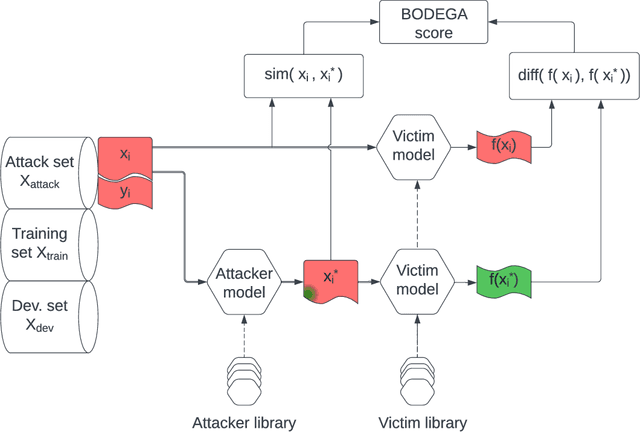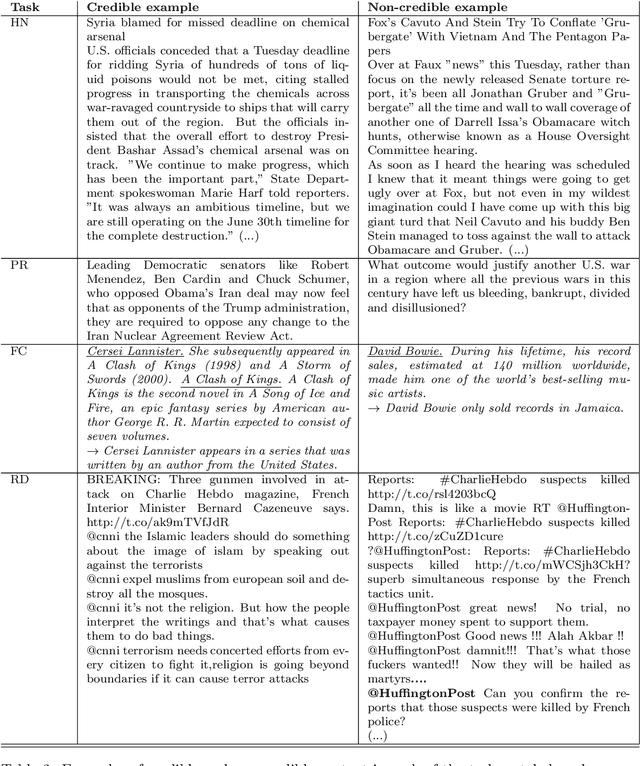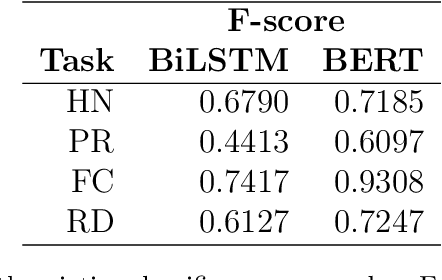BODEGA: Benchmark for Adversarial Example Generation in Credibility Assessment
Paper and Code
Mar 14, 2023



Text classification methods have been widely investigated as a way to detect content of low credibility: fake news, social media bots, propaganda, etc. Quite accurate models (likely based on deep neural networks) help in moderating public electronic platforms and often cause content creators to face rejection of their submissions or removal of already published texts. Having the incentive to evade further detection, content creators try to come up with a slightly modified version of the text (known as an attack with an adversarial example) that exploit the weaknesses of classifiers and result in a different output. Here we introduce BODEGA: a benchmark for testing both victim models and attack methods on four misinformation detection tasks in an evaluation framework designed to simulate real use-cases of content moderation. We also systematically test the robustness of popular text classifiers against available attacking techniques and discover that, indeed, in some cases barely significant changes in input text can mislead the models. We openly share the BODEGA code and data in hope of enhancing the comparability and replicability of further research in this area.
 Add to Chrome
Add to Chrome Add to Firefox
Add to Firefox Add to Edge
Add to Edge